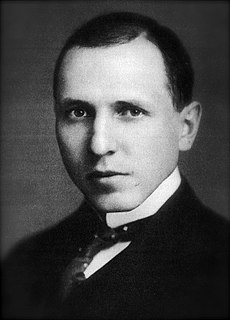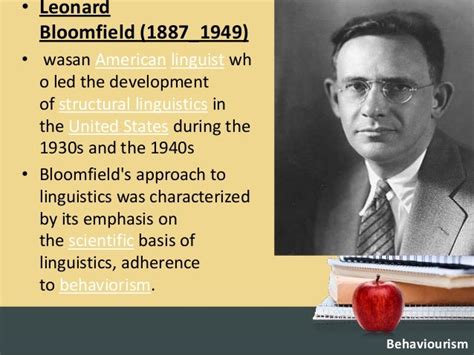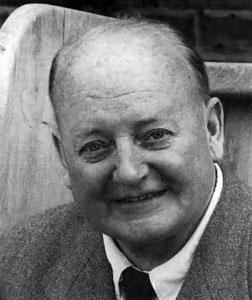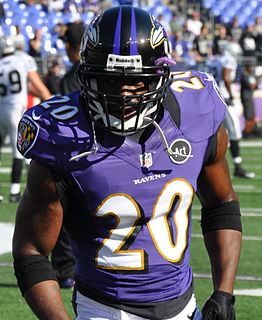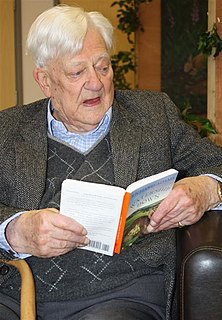A Quote by Douglas Southall Freeman
I would say that the study of history is that which gives man the greatest optimism, for if man were not destined by his Maker to go on until the Kingdom of Heaven is attained, man would have been extinguished long ago by reason of all man's mistakes and frailties.
Related Quotes
If it were possible to transfer the methods of physical or of biological science directly to the study of man, the transfer would long ago have been made ... We have failed not for lack of hypotheses which equate man with the rest of the universe, but for lack of a hypothesis (short of animism) which provides for the peculiar divergence of man ... Let me now state my belief that the peculiar factor in man which forbids our explaining his actions upon the ordinary plane of biology is a highly specialized and unstable biological complex, and that this factor is none other than language.
The level above Man is called the Kingdom of Heaven or Kingdom of God in the Gospels. It has many other names in different writings. In the Gospels, it is said that the Kingdom of Heaven is within. It is at a higher level of a man. To reach it, a man must reach a higher level in himself. If everyone did this, the level of life on this earth would change.
The animals you say were 'sent' for man's free use and nutriment. Pray, then, inform me, and be candid, why came they aeons before man did, to spend long centuries on earth. Awaiting their devourer's birth? Those ill-timed chattels, sent from heaven, were, sure, the maddest gift e'er given - 'sent' for man's use (can man believe it?) when there was no man to receive it!
One of man's important mistakes, one which must be remembered, is his illusion in regard to his I. Man such as we know him, the 'man-machine,' the man who cannot 'do,' and with whom and through whom everything 'happens,' cannot have a permanent and single I. His I changes as quickly as his thoughts, feelings and moods, and he makes a profound mistake in considering himself always one and the same person; in reality he is always a different person, not the one he was a moment ago.
There came to him an image of man’s whole life upon the earth. It seemed to him that all man’s life was like a tiny spurt of flame that blazed out briefly in an illimitable and terrifying darkness, and that all man’s grandeur, tragic dignity, his heroic glory, came from the brevity and smallness of this flame. He knew his life was little and would be extinguished, and that only darkness was immense and everlasting. And he knew that he would die with defiance on his lips, and that the shout of his denial would ring with the last pulsing of his heart into the maw of all-engulfing night.
Right now if this preacher died he would go to heaven. Not because I spent years in the jungles and the Andes Mountains of Peru. Not because of piety, devotion or bible study. Not because of denominational affiliation, baptism, or participation in the Lord’s supper. If I died right now, I would go to heaven because two thousand years ago the Son of God shed His blood for this wretched man. And that is my hope.
He who made us would have been a pitiful bungler, if he had made the rules of our moral conduct a matter of science. For one man of science, there are thousands who are not. What would have become of them? Man was destined for society. His morality, therefore, was to be formed to this object. He was endowed with a sense of right and wrong, merely relative to this.
When a man sought knowledge, it would not be long before it could be seen in his humbleness, his sight, upon his tongue and his hands, in his prayer, in his speech and in his disinterest (zuhd) in worldly allurements. And a man would acquire a portion of knowledge and put it into practice, and it would be better for him than the world and all it contains - if he owned it he would give it in exchange for the hereafter.
If the flower were not attached to its stem, it would flee at the approach of man, like the insect or the bird; for the attribute of man on the earth, at least as long as he does not better understand his role, is to worry and frighten what he is not interested in taming for utilitarian purposes. Man is skillful in mistreating everything he can use
When the man was disgraced and told to go away, he was allowed to ask all the animals whether any of them would come with him and share his fortunes and his life. There were only two who agreed to come entirely of their own accord, and they were the dog and the cat. And ever since then, those two have been jealous of each other, and each is for ever trying to make man choose which one he likes best. Every man prefers one or the other.
